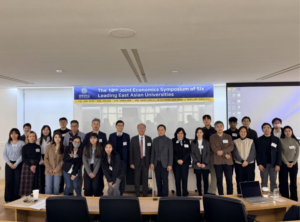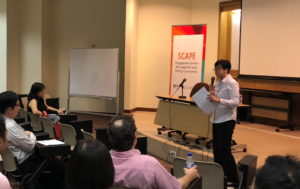Singapore Centre for Applied and Policy Economics (SCAPE)
Welcome to SCAPE
The Singapore Centre for Applied and Policy Economics (SCAPE) is based in the Department of Economics at the National University of Singapore. Building on the Department’s strengths in applied economics, the centre aims to produce rigorous and timely research relevant to public policy in Singapore and Asia.
SCAPE also serves as a focal point of the local economic policy research network. By organizing joint workshops and facilitating collaborative ventures, the centre brings together economists working in academia, government, and local think tanks. Through public talks and writings in the popular media, SCAPE also strives to communicate findings from cutting edge economic research to the public, in order to improve the quality of public discourse on important policy issues.
Current director: A/P Liu Haoming



